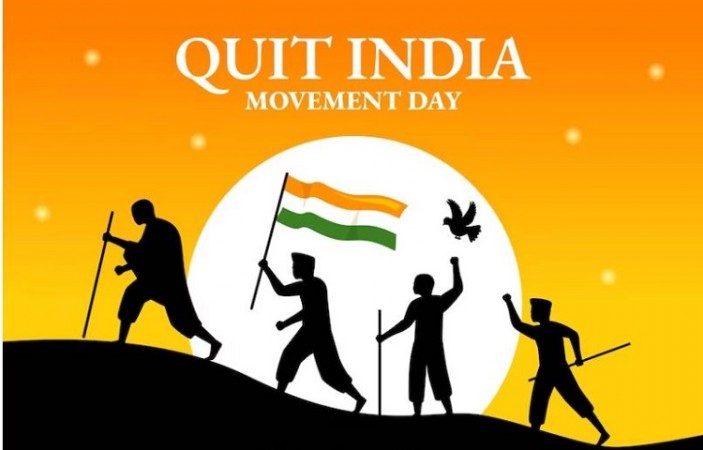
August 8th marks a significant day in India's history as it commemorates the Quit India Movement, a pivotal event that played a crucial role in the country's struggle for independence from British colonial rule. The Quit India Movement, also known as the Bharat Chhodo Andolan, was a mass civil disobedience movement launched by Mahatma Gandhi and the Indian National Congress on August 8, 1942. This article delves into the origins, objectives, impact, and lasting legacy of the Quit India Movement, which continues to inspire generations to stand up for justice, freedom, and self-rule.
Origins and Objectives: The Quit India Movement emerged in response to the British government's refusal to grant India full independence and Gandhi's call for immediate self-rule. India had been under British colonial rule for nearly 200 years, and the people were increasingly impatient with the continued subjugation and exploitation. In his speech at the All India Congress Committee session on August 8, 1942, Gandhi famously said, "Every man and woman has to play his or her part in this struggle for freedom, for it will be the last struggle."
The primary objectives of the movement were to demand the British rulers to "Quit India" and transfer the power to Indians. The movement aimed to achieve complete independence for India through non-violent means, emphasizing the principles of Satyagraha (non-violent civil resistance) that Gandhi had been advocating throughout his life.
Impact and Challenges: The Quit India Movement ignited a wave of fervor and patriotism across the country. Millions of Indians from all walks of life came together to participate in demonstrations, strikes, and protests against British rule. The British government responded with brute force, arresting thousands of Indian leaders, including Gandhi himself. Mass protests were met with severe repression, and the British authorities resorted to violence, leading to widespread casualties and arrests.
The movement faced several challenges, including the suppression of the press, communication restrictions, and the division among some Indian political parties regarding the methods and timing of the struggle. However, the people's determination and Gandhi's unwavering commitment to non-violence helped maintain the movement's resilience.
Legacy: Despite its initial setbacks, the Quit India Movement left a profound impact on India's struggle for freedom. It marked a turning point in India's fight for independence, as the movement brought the cause of self-rule to the forefront of the international stage. It also played a significant role in weakening the British colonial administration and strengthening the resolve of the Indian people.
The Quit India Movement also paved the way for broader participation of the masses in the freedom struggle. People from all walks of life, including students, women, and workers, joined the movement, making it a truly inclusive and mass-based struggle.
Furthermore, the movement served as a wake-up call to the British authorities, indicating that their grip on India was slipping. It also intensified the demand for independence, leading to a series of negotiations between Indian leaders and the British government post-World War II.
On August 8th and also 9th, as we observe Quit India Movement Day, we remember the sacrifices and determination of countless Indians who fought for the country's freedom. The Quit India Movement demonstrated the power of non-violent resistance in the face of oppression and tyranny. Its legacy continues to inspire movements for justice, liberty, and equality around the world.
As India celebrates its independence, it is essential to pay homage to those who laid the foundation for a free nation. The lessons from the Quit India Movement are a reminder that the struggle for freedom and justice demands unity, perseverance, and adherence to the principles of truth and non-violence. As we reflect on this historic day, let us renew our commitment to uphold the values of democracy, secularism, and equality that the leaders of the Quit India Movement fought for, and envision a brighter, inclusive future for generations to come.